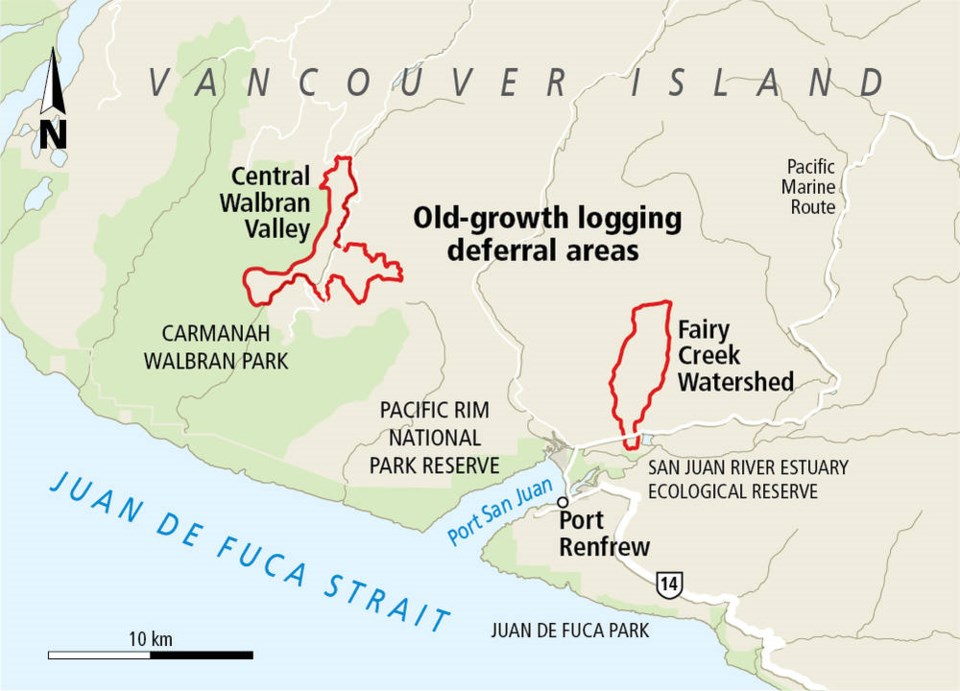The B.C. government has approved a request by the Pacheedaht, Ditidaht and Huu-ay-aht First Nations to defer old-growth logging for two years in the Fairy Creek watershed and Central Walbran area, the premier said Wednesday afternoon.
The deferrals will affect approximately 2,034 hectares of old-growth forest — roughly 884 hectares in the Fairy Creek watershed and 1,150 in the Central Walbran area.
“These announcements are transformative for an industry that has been foundational to British Columbia’s success and will be foundational for our future success. But it has to be done in a different way. It has to take into consideration the ravages of climate change,” said Premier John Horgan.
On Monday, the three First Nations called for a deferral of old-growth logging in the two areas while they prepare stewardship plans, and asked protesters not to block logging approved by them and the province in other parts of their territories.
Teal-Jones Group, the forestry company that owns the licence for Tree Farm Licence 46, said Monday they would abide by the nations’ request and put a stop to harvesting and road building in the deferral areas.
The province is not required to compensate the forestry company for a deferral of up to four years. The impact on jobs is not expected to be significant, Horgan said.
Tenure holders will be able to continue harvesting in second-growth forest in the Fairy Creek watershed and the Central Walbran area, with the exception of 145 hectares of second-growth in the watershed.
Road building is also suspended in the deferral areas.
In a joint statement, the Pacheedaht, Ditidaht and Huu-ay-aht First Nations said Wednesday they welcome the province’s decision to approve their request.
The nations said they are committed to developing a formal resource-management plan for their traditional territories and anticipate the work will take about two years.
“This important work will draw on the teachings of our ancestors, the wisdom of our Elders, the input of our citizens, the input of our valued partners, the best available forestry, fishery, and integrated resource management advice, and it will be guided by our sacred principles of ʔiisaak (utmost respect), ʔuuʔałuk (taking care of), and Hišuk ma c̕awak (everything is one),” the statement said.
The nations said they respect the right to protest, as long as it does not interfere with authorized forestry work.
The Rainforest Flying Squad, a grassroots group trying to prevent logging of old-growth on southwestern Vancouver Island, has said the deferral areas fall short of what’s needed, and they plan to continue trying to prevent old-growth logging in surrounding areas.
Kathy Code, a spokeswoman for the group, said activists blockading logging roads will likely move away from areas where deferrals have been approved, but she hadn’t yet been in touch with those on the ground.
“We will certainly restrategize, but we will not be leaving the rest of the old growth behind for them to cut either,” she said.
The group would like to see protection for all old-growth in the province.
“We only have 415 hectares of the high-productivity old-growth left, to the point where every hectare counts of that … We don’t have any to spare,” she said.
> Society crowdfunds to protect old-growth forests, A4



